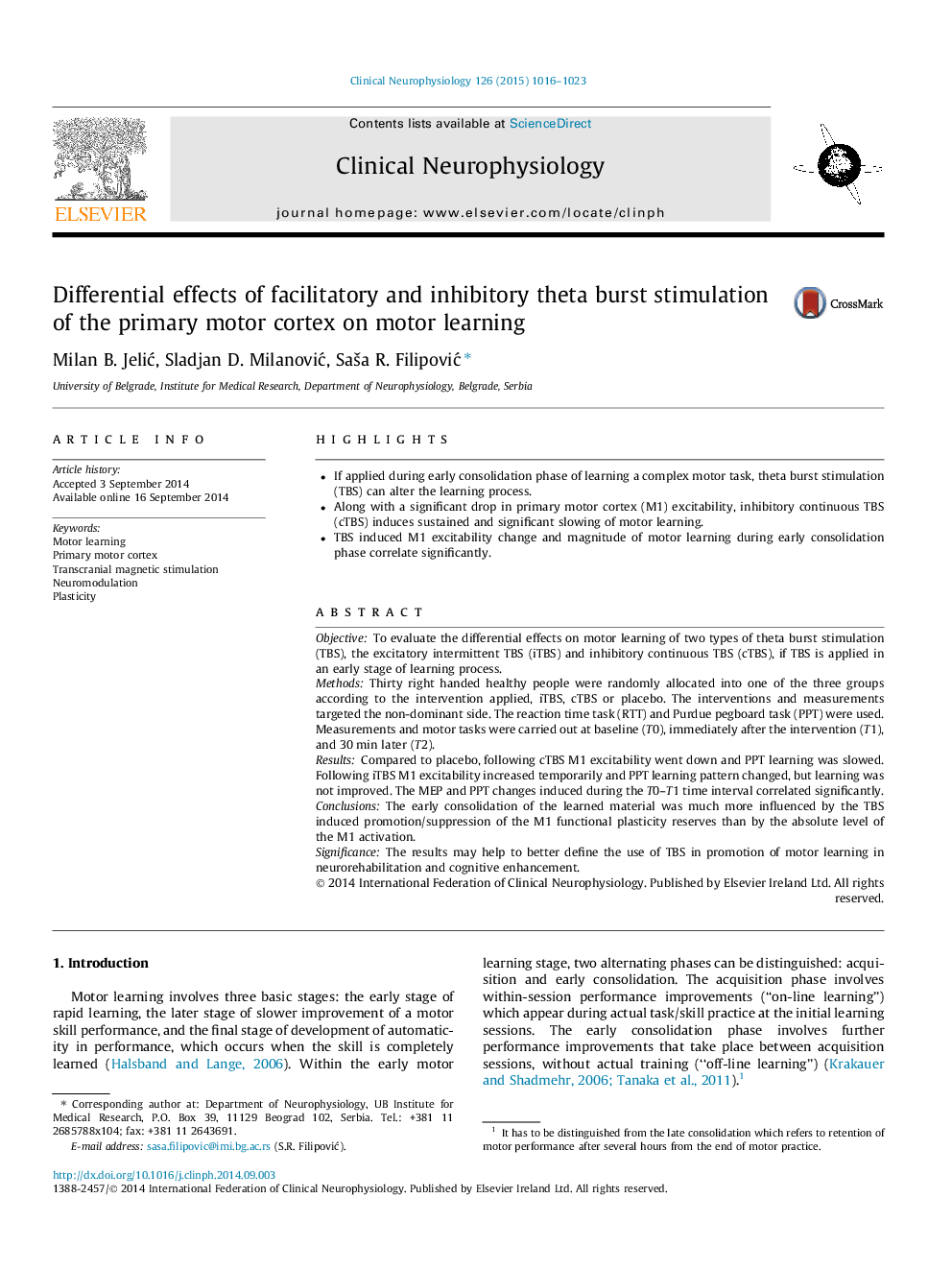| Article ID | Journal | Published Year | Pages | File Type |
|---|---|---|---|---|
| 3042796 | Clinical Neurophysiology | 2015 | 8 Pages |
•If applied during early consolidation phase of learning a complex motor task, theta burst stimulation (TBS) can alter the learning process.•Along with a significant drop in primary motor cortex (M1) excitability, inhibitory continuous TBS (cTBS) induces sustained and significant slowing of motor learning.•TBS induced M1 excitability change and magnitude of motor learning during early consolidation phase correlate significantly.
ObjectiveTo evaluate the differential effects on motor learning of two types of theta burst stimulation (TBS), the excitatory intermittent TBS (iTBS) and inhibitory continuous TBS (cTBS), if TBS is applied in an early stage of learning process.MethodsThirty right handed healthy people were randomly allocated into one of the three groups according to the intervention applied, iTBS, cTBS or placebo. The interventions and measurements targeted the non-dominant side. The reaction time task (RTT) and Purdue pegboard task (PPT) were used. Measurements and motor tasks were carried out at baseline (T0), immediately after the intervention (T1), and 30 min later (T2).ResultsCompared to placebo, following cTBS M1 excitability went down and PPT learning was slowed. Following iTBS M1 excitability increased temporarily and PPT learning pattern changed, but learning was not improved. The MEP and PPT changes induced during the T0–T1 time interval correlated significantly.ConclusionsThe early consolidation of the learned material was much more influenced by the TBS induced promotion/suppression of the M1 functional plasticity reserves than by the absolute level of the M1 activation.SignificanceThe results may help to better define the use of TBS in promotion of motor learning in neurorehabilitation and cognitive enhancement.
